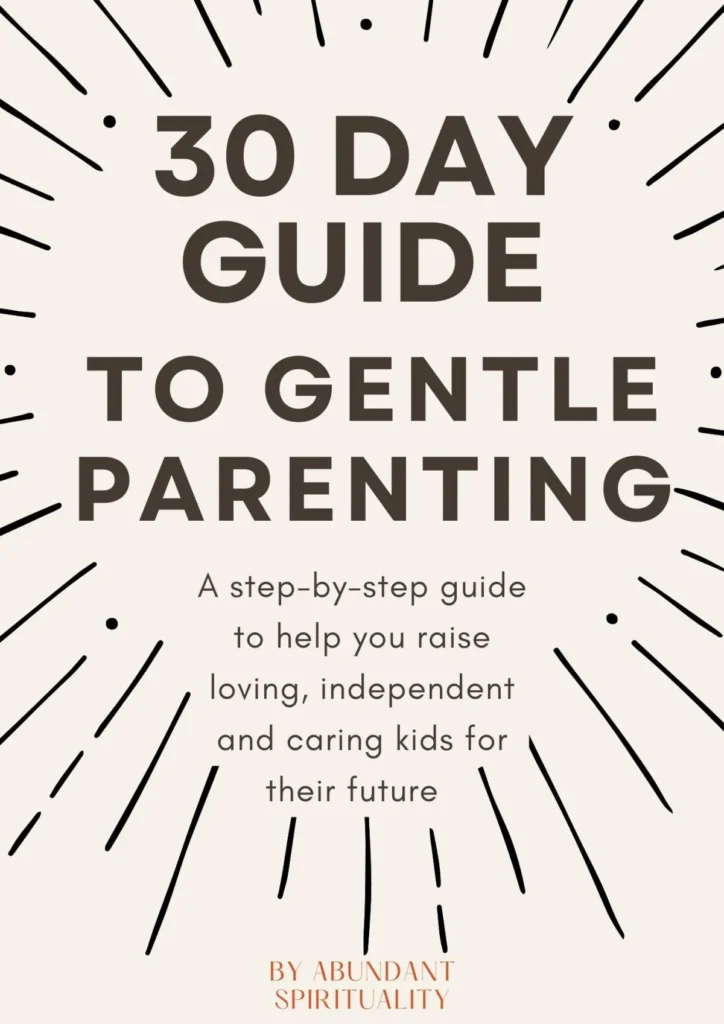You’ve decided to embark on the journey of gentle parenting, a compassionate and understanding approach that can make a significant difference in your child’s life.
Embracing this style means fostering a nurturing and respectful environment where empathy and positive reinforcement take precedence. As you navigate through daily routines, there’s an abundance of practical strategies you can incorporate to ensure your parenting aligns with these gentle principles.
From mindful communication to setting kind yet firm boundaries, these everyday practices will help create a harmonious and supportive atmosphere for your family.
What Are Some Practical Ways To Practice Gentle Parenting In Daily Life
Gentle parenting has been gaining momentum as more parents seek nurturing and patient methods to raise their children.
But what exactly is gentle parenting, and how can you incorporate its principles into your daily life?
In this article, we’ll dive into practical strategies and offer actionable advice to help you transform your parenting style in a manner that’s both compassionate and effective.
Understanding Gentle Parenting
Gentle parenting, at its core, is about fostering a supportive, empathetic, and respectful relationship between you and your child.
It deviates from traditional authoritarian parenting by placing greater emphasis on connection rather than correction. Gentle parenting encourages emotional intelligence and mutual respect, equipping children with the skills they need to navigate a complex world.
By practicing gentle parenting, you can encourage your child to grow into a confident, self-aware, and considerate individual.
The Importance of Self-Regulation
Before you can practice gentle parenting, it’s vital to address your own emotional regulation.
Children are highly attuned to their parents’ emotions, and your ability to remain calm and composed sets a powerful example. Take time for self-care, whether it’s through mindfulness, exercise, or hobbies that rejuvenate you.
You’re more likely to respond with empathy and patience if you’re not dragging the weight of stress and exhaustion.
Practice Mindfulness
Mindfulness is an essential tool for both parents and children.
By practicing mindfulness, you can create a more peaceful and conscious environment at home.
Simple practices such as deep breathing, counting to ten before responding, and guided meditation can greatly benefit your interactions with your child.
Understanding Your Triggers
Identify the situations that tend to set you off, and create strategies to manage those triggers.
This may involve taking a moment to step away and collect your thoughts before engaging with your child. Remember, it’s perfectly okay to take a brief pause if it means approaching a situation with more clarity.

What is Gentle Parenting – Is it the right approach for your family?
Creating A Nurturing Environment
A child’s environment plays a crucial role in their emotional and cognitive development. Creating a nurturing space means providing a physically safe, stimulating, and emotionally secure atmosphere.
Encourage Open Communication
Aim to foster a home where your child feels comfortable expressing their thoughts and feelings.
Active listening is key here—taking the time to really hear your child without immediately jumping to conclusions or solutions. This not only builds trust but also teaches your child the valuable skill of effective communication.
Set Consistent Boundaries
Boundaries are essential for children to feel secure.
However, in gentle parenting, these boundaries are set with respect and understanding. Instead of saying a flat “no” to your child’s requests, explain why certain rules exist.
You might say, “I understand you want to play longer, but it’s time for bed because your body needs rest to grow strong.”
Establish Routines
Routines provide a sense of stability and predictability for children.
Consistent bedtimes, mealtimes, and playtimes can help your child know what to expect, reducing anxiety and fostering a sense of security.
Using Positive Discipline
Positive discipline is the alternative to punitive measures and aligns with the core principles of gentle parenting.
The aim is to guide and teach rather than punish. This approach focuses on understanding the reasons behind a child’s behavior and helping them make better choices rather than imposing arbitrary punishments.
Natural Consequences
Allow natural consequences to unfold as long as they are safe.
For example, if a child refuses to wear a coat, they might feel cold later and understand the importance of dressing warmly. This teaches responsibility and decision-making skills.
Problem-Solving Together
Involve your child in solving the problems they face.
If they have a conflict with a sibling, guide them to find a solution together rather than stepping in to mediate every disagreement. This encourages cooperation and empathy.
Use Encouragement Over Praise
While it’s natural to want to praise your child, focus more on encouragement that emphasizes effort and improvement.
Statements like, “I noticed how hard you worked on that puzzle” can be more empowering than, “You’re so smart.”
Encouragement helps build a growth mindset, fostering resilience and perseverance.

This image is property of images.pexels.com.
Fostering Emotional Intelligence
Emotional intelligence is a key component of gentle parenting. It involves teaching your child how to identify, understand, and manage their emotions effectively.
Label Emotions
From a young age, help your child put names to their feelings.
When they throw a tantrum, calmly say, “I see you’re very upset right now.” This helps them recognize and articulate their emotions instead of acting out.
Model Empathy
Show empathy in your own actions.
When your child sees you demonstrating understanding and compassion, they’re more likely to emulate those behaviors.
If they see you respond kindly to someone else’s distress, they learn the value and need for empathy in relationships.
Teach Coping Skills
Equip your child with techniques to manage their emotions.
This might include taking deep breaths, counting to ten, or engaging in a calming activity.
These skills are invaluable for emotional self-regulation as they grow.
Practical Strategies for Daily Life
Now that you have an understanding of the core principles of gentle parenting, let’s explore some practical strategies you can incorporate into your daily life.
Morning Routines
Mornings can set the tone for the entire day.
Strive to start the day on a positive note with a calm and well-organized routine.
This might include waking up a bit earlier to avoid a rushed atmosphere, having a healthy breakfast together, and spending a few moments discussing the day’s plans.
Mealtime Conversations
Use mealtime as an opportunity to engage with your child fully.
Encourage open-ended questions that prompt discussion rather than simple yes-or-no answers.
Ask about the highs and lows of their day, their favorite part of a story, or what they think about a current event.
Bedtime Rituals
Bedtime can be an important bonding time.
Establish a consistent bedtime routine that includes activities like reading a book together, discussing the day, and practicing gratitude.
These rituals not only help your child wind down but also close the day on a comforting note.

This image is property of images.pexels.com.
The Role of Play
Play is a child’s primary way of learning about the world. It’s also an excellent avenue for practicing gentle parenting.
Engaging in Play
Take time daily to engage in play with your child, allowing them to lead the activities. This not only strengthens your bond but also gives them a sense of control and importance.
Teaching Through Play
Use play to instill values and skills.
Games that involve taking turns, sharing, and working together can organically teach these essential concepts. If a disagreement arises, it’s an opportunity to guide them towards respectful resolution.
Building Independence
Encouraging independence is a critical aspect of gentle parenting.
While it’s natural to want to shelter and protect your child, providing opportunities for them to develop autonomy fosters self-confidence and competence.
Age-Appropriate Responsibilities
Assign your child tasks that are appropriate for their age.
This might include simple chores, such as setting the table or helping to prepare meals. These responsibilities give them a sense of accomplishment and contribution.
Encouraging Problem-Solving
When your child encounters challenges, resist the urge to immediately step in.
Instead, support their problem-solving efforts by asking guiding questions that help them think through the situation and arrive at their own solutions.
Promoting Self-Care
Teaching your child to take care of themselves is a lifelong skill.
Promote habits like brushing teeth, dressing themselves, and choosing their hairstyle or clothing. These small acts of independence build their self-esteem and capability.

Table of Practical Ways to Practice Gentle Parenting
To help you digest these strategies, here’s a concise breakdown of practical ways to practice gentle parenting in your daily life:
| Aspect | Practical Strategy |
|---|---|
| Self-Regulation | Practice mindfulness, understand your triggers |
| Nurturing Environment | Encourage open communication, set consistent boundaries |
| Positive Discipline | Use natural consequences, problem-solve together, offer encouragement |
| Emotional Intelligence | Label emotions, model empathy, teach coping skills |
| Daily Routines | Establish morning routines, engage in mealtime conversations, create bedtime rituals |
| Role of Play | Engage in play, teach through play |
| Building Independence | Assign age-appropriate responsibilities, encourage problem-solving, promote self-care |
Conclusion: Embrace the Journey
Gentle parenting is not about perfection—it’s about progress.
Each small step you take towards practicing empathy, understanding, and respectful communication with your child contributes to their emotional well-being and social development.
As you incorporate these practical strategies into your daily life, you’ll find that your relationship with your child becomes stronger, and you’re better equipped to navigate the challenges of parenting with grace and compassion.
Thank you for taking the time to read this article. If you found it helpful, please leave a comment, and subscribe to our Medium newsletter for updates and more parenting tips.
Here’s to joyful parenting!
Join us to receive more articles like this, or visit our Media site for more reading:



